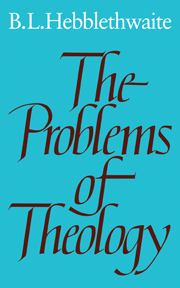1 - Is there such a subject?
Published online by Cambridge University Press: 30 September 2009
Summary
Introduction
In most of the universities of western Europe, there survives a faculty of Christian theology (occasionally more than one, as in the Protestant and Catholic faculties at some German universities). In colleges of education, in some newer universities, and, increasingly, in schools, if the subject is studied at all, it is more likely to be under the heading of ‘religious studies’. Nevertheless there are departments of theology, there are such people as theologians, and a surprisingly large number of theological books are still being published. Even in religious studies, theology appears as one among many phenomena in the whole world of religion.
To ask, then, Is there such a subject?, might seem to be a foolish question. For clearly there is. Is it not more sensible to ask, What is theology?, What do theologians think they are doing?, Ought there still to be theology faculties in the universities? But I stick by the question in this chapter's title for the following reason. The word ‘theology’ means rational thought or talk about God, and this is what, for the most part, theologians have held their subject to be. But we live in a time when the majority of educated people in the west do not believe in God. For them there is, strictly speaking, no such subject as theology; for its subject matter or object does not exist. Of course it is easy to reply that the beliefs existed once and still, to some extent at least, do exist.
Information
- Type
- Chapter
- Information
- The Problems of Theology , pp. 1 - 22Publisher: Cambridge University PressPrint publication year: 1980
